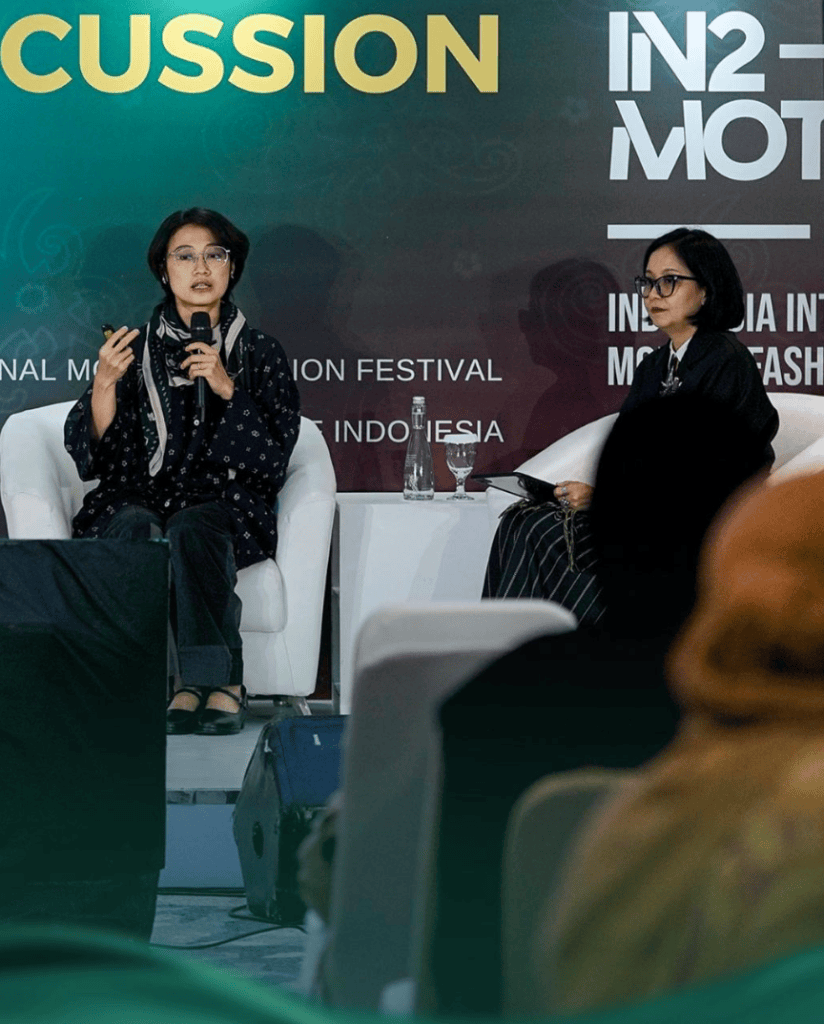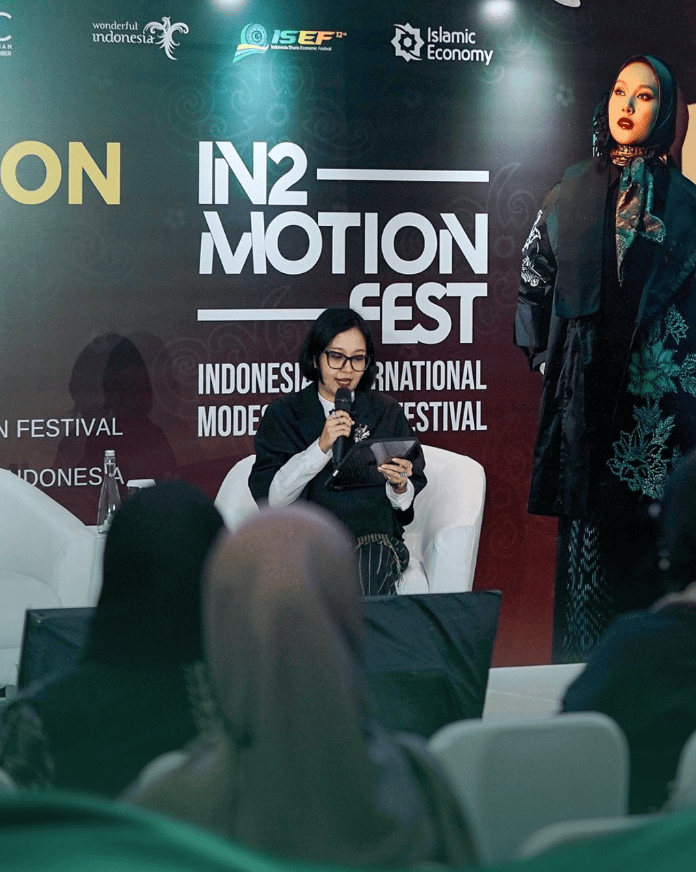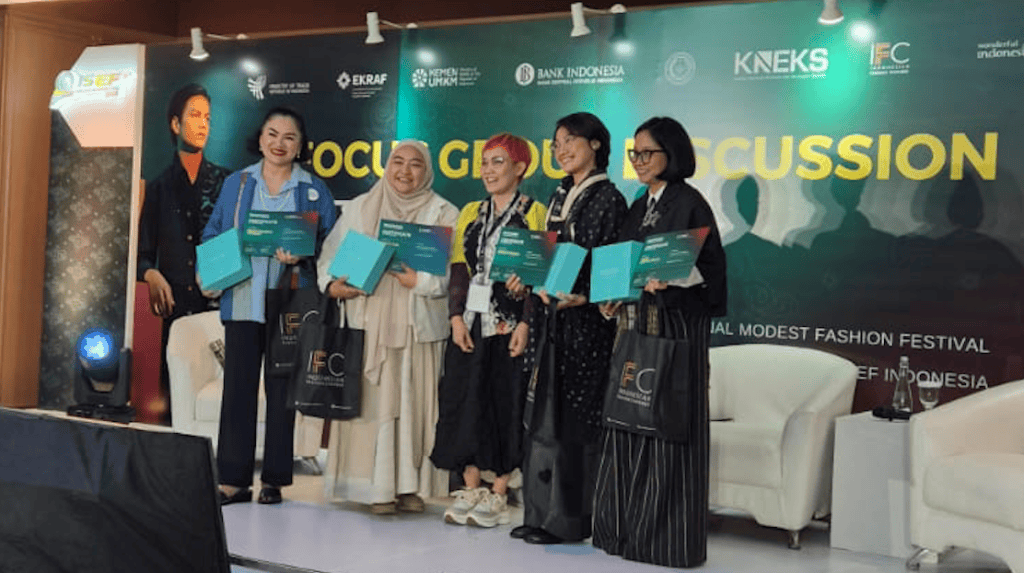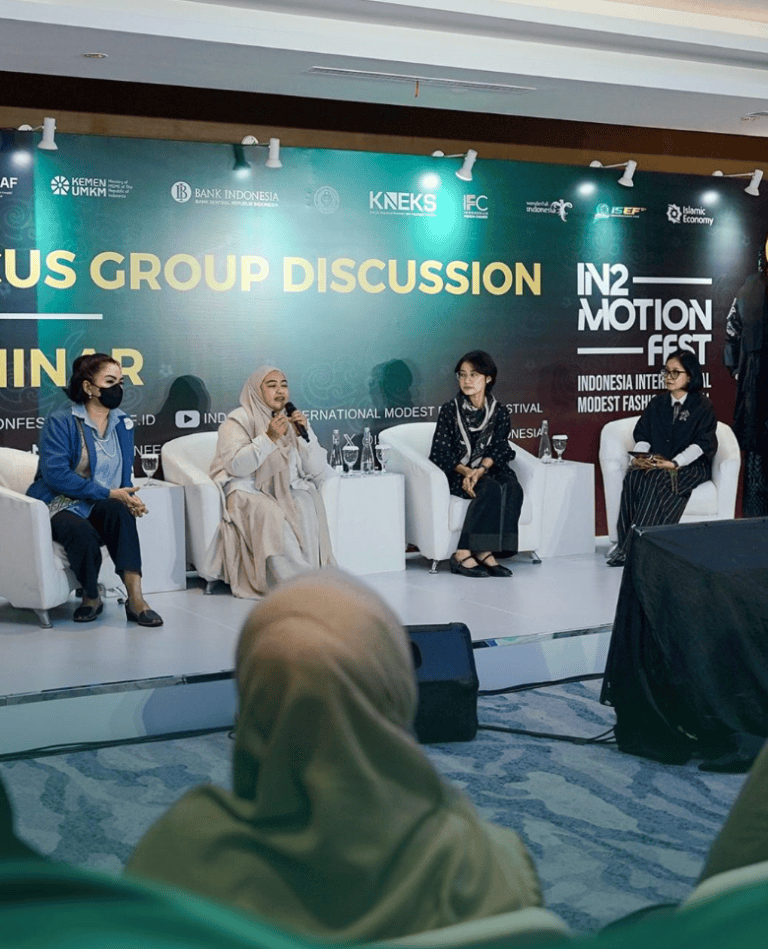On October 8, 2025, Closed Loop Fashion joined the Indonesia International Modest Fashion Festival (In2MotionFest) to present an input session in a focused group discussion titled “National Movement in Ethical Fashion.” The festival, held in Jakarta, co-hosted by Bank Indonesia and the Indonesia Fashion Chamber (IFC), is a flagship event promoting Indonesia’s modest fashion industry through collaboration, sustainability and sharia-based economic growth.
On October 8, 2025, Closed Loop Fashion joined the Indonesia International Modest Fashion Festival (In2MotionFest) to present an input session in a focused group discussion titled “National Movement in Ethical Fashion.” The festival, held in Jakarta, co-hosted by Bank Indonesia and the Indonesia Fashion Chamber (IFC), is a flagship event promoting Indonesia’s modest fashion industry through collaboration, sustainability and sharia-based economic growth.
Moderated by Yufie Kartaatmaja from IFC, the FGD featured Annisa Fauziah from Closed Loop Fashion, Anita Yuni, founder of Organic Culture and Moza Paramita from Tobatenun. The discussion focused on how MSMEs and regional collectives are driving ethical fashion at the community level and the need for stronger government support through incentives, infrastructure and policy alignment.
Speakers also highlighted the importance of preserving Indonesia’s cultural heritage while addressing the realities of slow fashion and exploring new business models such as made-to-order production, upcycling and more circular practices such as textile waste management and circular design.


Representing Closed Loop Fashion, Annisa Fauziah shared practical examples of applying circular economy principles in modest fashion and called for greater collaboration across industry, government and communities. Anita Yuni shared her experience as an MSME transitioning to eco-friendly, halal-certified production and recognised the role of Bank Indonesia’s IKRA program in financing and mentorship.
Interestingly, most of the audience were women entrepreneurs from small and medium fashion enterprises. Many showed genuine excitement about joining the sustainability movement, yet also admitted they were unsure how to start. It underscored the need for more practical, and on the ground support to help local brands take their first steps toward ethical and circular fashion.
The session concluded with a call for closer collaboration among designers, artisans, policymakers and academia to shape a national roadmap for ethical and sustainable fashion in Indonesia.



